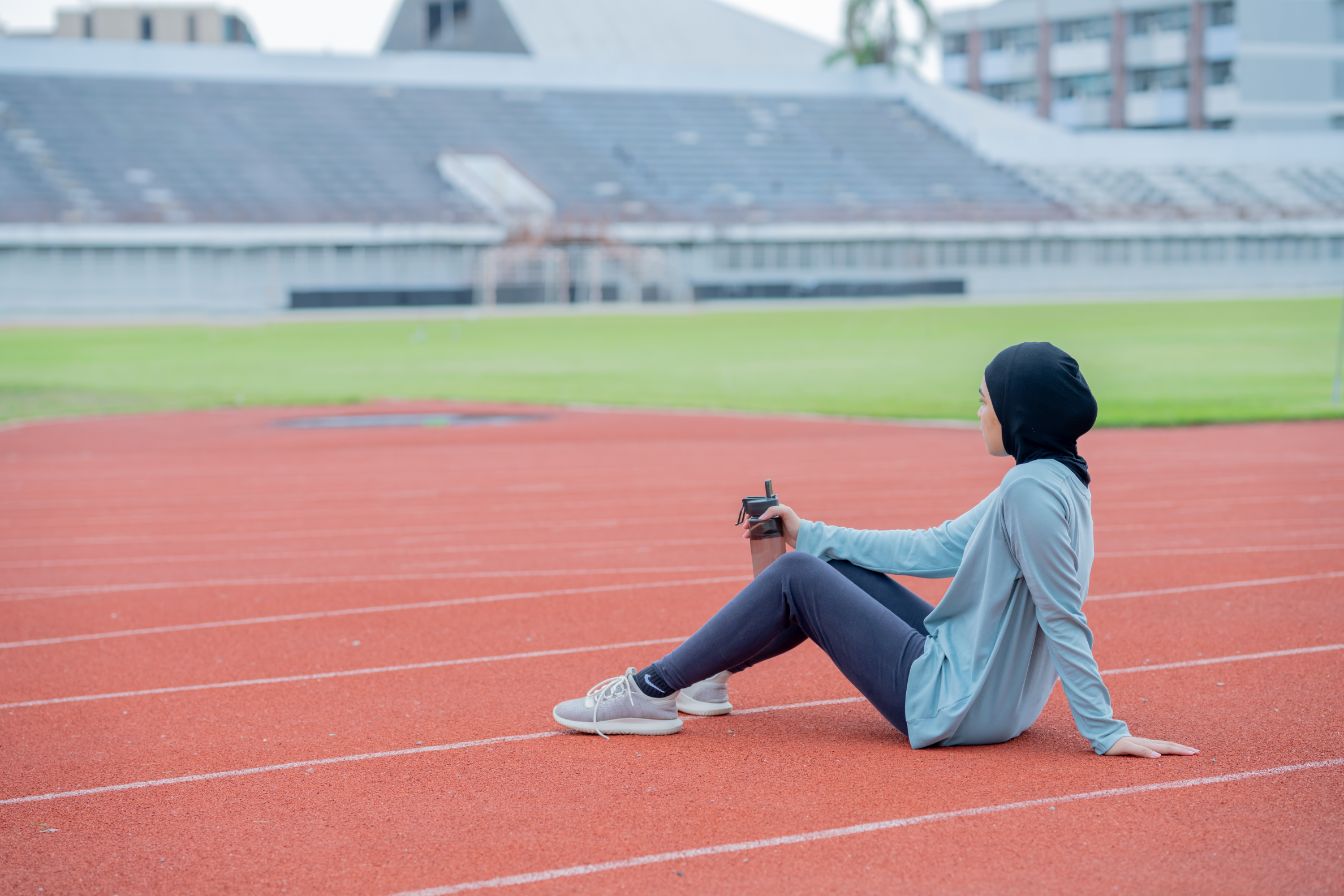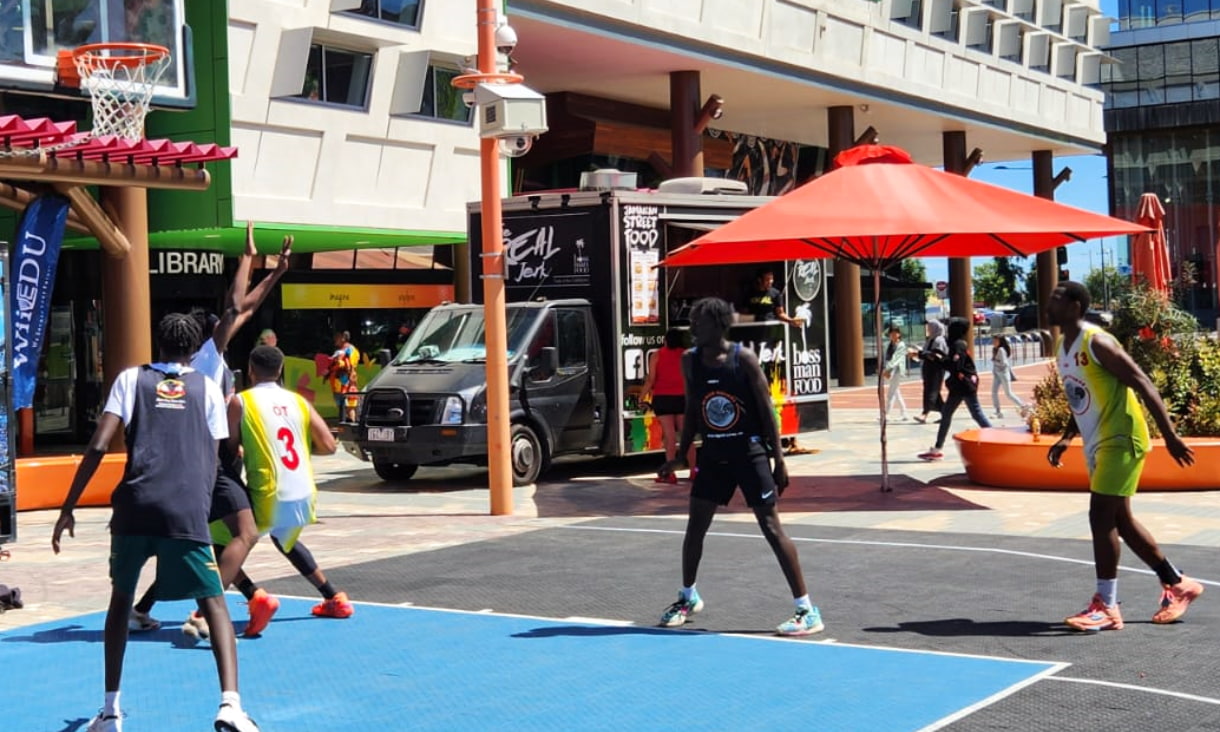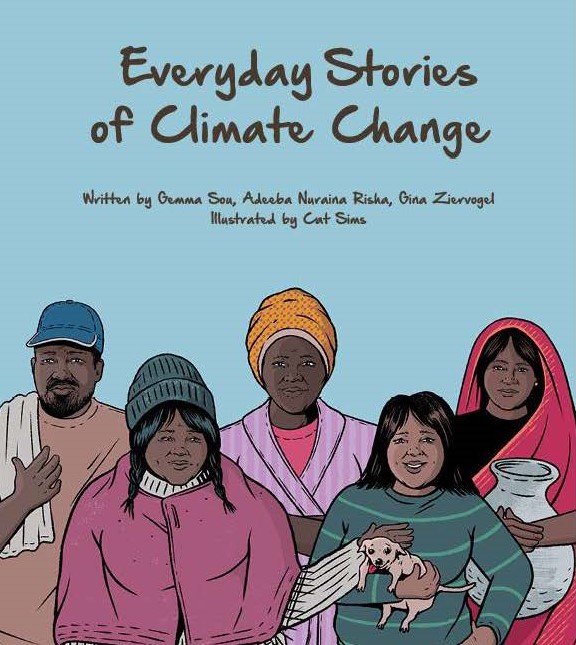Research conducted by the Social Equity Research Centre is helping to achieve social justice and global transformations.

In the game: Enabling Muslim girls to play sport and be active
The findings of the study, “In the Game: Overcoming barriers and parental attitudes towards the physical activity outcomes of Muslim girls on the fringes of Melbourne” (2022) by Dr Tuba Boz and Prof Hariz Halilovich were released at the cmSport and VicSport Forum on 21 June 2023.
The research was funded by the Victorian Government's Change Our Game Research Grants Program. The study examined the barriers and enablers to Muslim women and girls’ participation in sports. The research highlighted the great aspiration of Muslim women and girls to play sport in culturally safe environments. The underrepresentation of Muslim women and girls in sports can be addressed through communication and building trust and partnerships between families, schools, local councils and sports clubs.
Wraparound Employment Services Co-Design Research Project
Researchers from the Social Work & Human Services cluster have partnered with employment-focused social enterprise Ability Works Australia and key community groups to co-design and co-create a framework for wraparound services to support young people and families from ethnically and culturally diverse communities in the Dandenong area to find and retain employment.
The project was funded by Ability Works (through the Westpac Foundation Community Grant) and Jobsbank, and is underpinned by the African collectivist philosophy of Ubuntu, alongside co-design principles.

Working in partnership with Afri-Aus Care, Bakhtar Community Organisation and Friends of Refugees, the co-design process consisted of seven focus groups with over 60 people, including women, men and young people experiencing significant barriers to employment.
The findings highlighted that barriers to employment are multi-causal and intersectional, produced by the complex interactions of structural, systemic, and individual challenges and barriers which need to be addressed by taking a multi-pronged approach.
The process resulted in the development of a framework for wraparound services that presents a holistic and inclusive way forward to promote employment access and opportunity.
The framework is now being used in the design of employment services and programs in the Dandenong area and was recently used as the basis for a Federal Senate submission to the Inquiry into Workforce Australia Employment Services. The project has also received local news coverage.
The research team included Associate Professor Ronnie Egan (chief investigator), Dr Sebastian Cordoba, Dr Christina David, Associate Professor Bawa Kuyini, Dr Tuba Boz and Dr Perrie Ballantyne.

Co-designed basketball program supports young African Australians
A youth sports initiative designed by RMIT, Afri-Aus Care community members and the Black Rhinos Basketball Program is assisting young African Australians and their families with their physical and mental health and wellbeing. RMIT researchers, including Ronnie Egan, worked with the Afri-Aus Care and the Black Rhinos Basketball members to co-design the program. From this co-design process, they will continue work with community to implement and co-design impact measures for the program and its expansion using innovative, culturally informed and collaborative research methods.A youth sports initiative designed by RMIT, Afri-Aus Care community members and the Black Rhinos Basketball Program is assisting young African Australians and their families with their physical and mental health and wellbeing.
Everyday Stories of Climate Change
In 2022, Vice Chancellor’s Fellow Gemma Sou launched her graphic novella Everyday Stories of Climate Change, which aims to support high school educators teach climate change from a social sciences perspective.
The comic is set in an Australian high school classroom, and threads together world-leading qualitative research about low-income families’ daily experiences of climate change and their adaptation in South Africa, Bangladesh, Bolivia, Puerto Rico and Barbuda
Research has found that teachers feel ill-equipped to teach climate change and students feel like information they receive is often too abstract, and too focused on science and economics. In contrast, the graphic novella allows readers to see the tangible everyday ways that people around the world live with and adapt to climate change, which can increase readers’ agency and hope to mitigate and adapt to climate change.
The is a collaboration between the Geography Teacher’s Association of Victoria (GTAV), RMIT, IPCC member Dr Gina Ziervogel at the University of Cape Town, and Dr Adeeba Nuraina Risha at BRAC University in Bangladesh. The GTAV is currently completing a teaching guide to accompany the comic.
You can download the comic here.


Enhancing Support Services
On 24th May 2022, SGSC researchers Dr Christina David and Dr Sharlene Nipperess, with Associate Professor Ilan Wiesel from Melbourne University, launched their new research report: 'Enhancing support services for people with disability and complex needs living in permanent supportive housing'.
The aim of this research was to explore the support needs of tenants living with disability and complex needs and the dynamics at the interface between in house supports, the NDIS, disability services providers, and community supports. The findings and recommendations have implications for support, policy and advocacy reform for people living in permanent supportive housing including strategies for increasing access to the NDIS and the development of specialist NDIA planners and service providers. The research also reinforces the importance of valuing tenants' lived experience and participation in decisions impacting their home and wellbeing.
This research was funded by the Lord Mayor's Charitable Foundation and was led by RMIT and supported by Launch Housing and Unison Housing. The researchers shared key findings and recommendations from the research with tenants and staff at Elizabeth Street Common Ground. The launch was attended by key stakeholders and the implementation of these recommendations was discussed.
2019 NSW Coronial Inquest into Drug-Related Deaths
Dr Monica Barratt and Dr Peta Malins presented their research at the NSW Coronial Inquiry into the six drug-related deaths at NSW festivals between December 2017 and January 2019.
Dr Barratt's recommendations were informed by her report, 'Australian music festival attendees who seek emergency medical treatment following alcohol and other drug use'. The report was compiled using data from the Global Drug Survey.
Dr Malins' recommendations were based on her publication in the International Journal of Drug Policy, 'Drug dogs affects: Accounting for the broad social, emotional and health impacts of general drug detection dog operations in Australia'.


Healthtalk Australia
Healthtalk Australia is a unique online repository of research-based health and illness experiences presented in an array of formats – film, audio and text.
Individual research projects within Citizenship, Care & Health have informed the development of a series of online resources, each centred on a different health or illness experience.
These resources provide support for people experiencing illness and their carers, as well as educating health and social care practitioners, and informing policymakers.
The Legal Implications of Revenge Pornography
This ARC Discovery Project aims to investigate prevalence, nature and effects of revenge pornography in Australia, New Zealand and the United Kingdom.
Revenge pornography is a serious criminal justice problem, but only one Australian jurisdiction has introduced legislation to address the issue. Applicable laws here and elsewhere are inconsistent and inadequate. Little is known about how widespread these behaviours are or how socially, economically and psychologically harmful they are. The project aims to generate knowledge, a theoretical framework and a much-needed evidence base to develop law reform and strategic interventions.

Researching Forensic Linguistics
The 2019 publication Researching Forensic Linguistics: Approaches and Applications by Georgina Heydon draws on case studies and data sets from a range of collaborative projects conducted within the Centre.
The book serves as a hands-on guide for conducting forensic linguistic research and addresses the social justice problems involving language.
Building Community Capacity in the NDIS
This 18-month action research project sought to co-design opportunities for citizenship and participation with people with disabilities in the NDIS context.
The research sought to explore how community capacity building work might operate in the new NDIS environment and the conditions required to ensure people with disabilities are leaders in this space.
The project produced several key prototypes and demonstrated a new model for developing opportunities for civic engagement and agentry with people living with disabilities. A key contribution has been to reframe the traditional 'inclusion paradigm' and to offer a new discourse around 'active citizens'.
